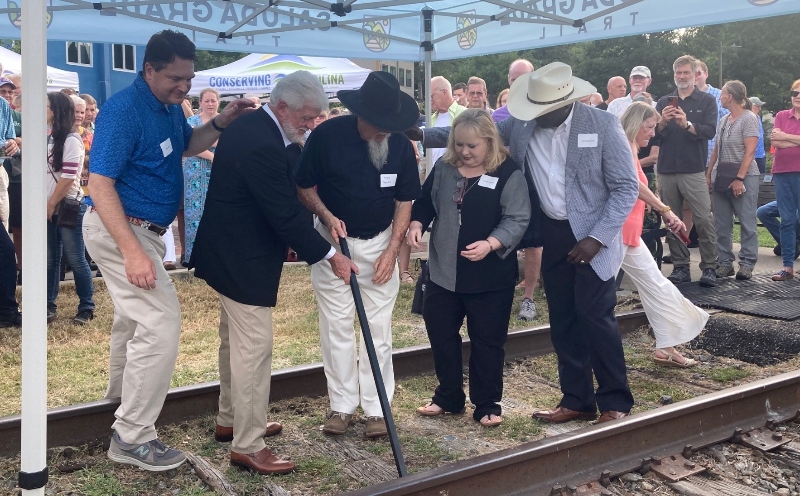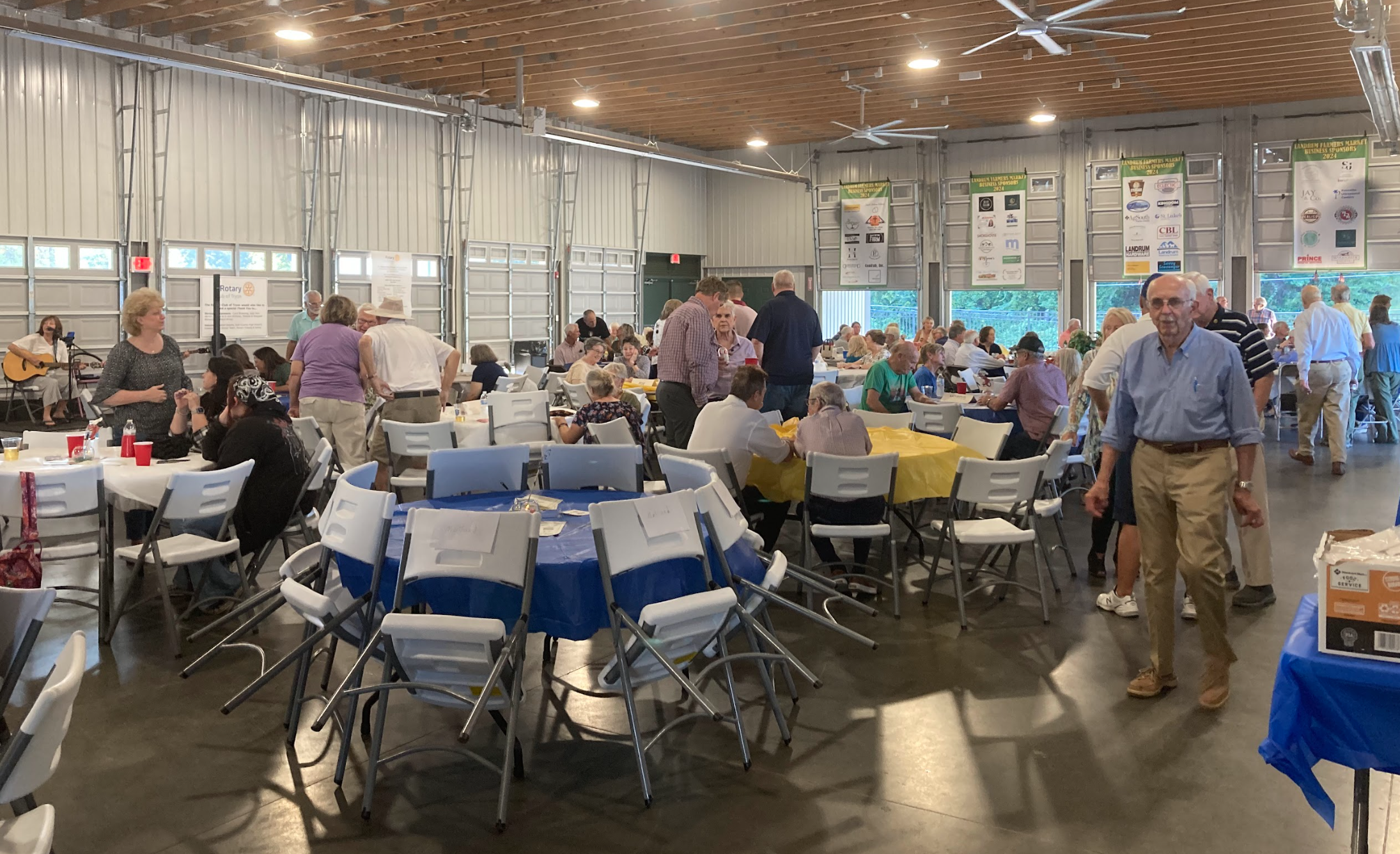Packed house for Duke informational meeting in Gowensville
Published 7:57 pm Sunday, August 9, 2015

A slide show created by meeting coordinator Terry Schager (right) provided contact information for local representatives and organizations such as the Foothills Preservation Alliance and Upstate Forever. An open forum period followed in which the meeting’s speakers addressed the attendees’ many questions and concerns. Schager and Glenn English (left) informed meeting attendees on ways to get involved and unify. The pair encouraged all resistance groups to push Duke Energy to either scrap the project altogether, or use existing right of ways. (Photo by Brandon Shanesy)
Gowensville’s Community Center was bursting at the seams on Friday, Aug. 7.
Meeting organizer Terry Schager did not expect such a large turnout, but was pleased with the outcome. Gowensville, Campobello and Landrum residents filled the available chairs and lined the walls.
Schager’s goal for the meeting was to educate those who were unable to attend the Duke informational meetings in July in Landrum, Fletcher and Flat Rock, do not have access to the Internet, or simply have not been made aware of Duke’s Western Carolinas Modernization Project.
Trending
He opened by asking those who had not visited the project website to raise their hands. In the crowd of approximately 100, only four hands were raised.
Seeing that most were familiar with the project, Schager changed the focus to resistance and unity.
Madelon Wallace, Foothills Preservation Alliance founder, gave details on the history of the organization and what it has to offer.
“We are trying to get every piece of information available all on our website so that you can find it without searching,” said Wallace.
The FPA website, found at www.foothillspreservationalliance.org, contains information on key leaders and how to get in touch with them to make a comment.
“I just wanted to stress the importance of making your comments,” said Wallace. “We can’t make them for you.”
Trending
Schager encouraged project opposition to drop the “not in my backyard” mentality.
“It’s not that we don’t want this in Gowensville,” said Schager. “We don’t want this at all.”
Glenn English, former U.S. House of Representatives member representing Oklahoma’s 6th district, and retired CEO of the National Rural Electric Cooperative Association, provided inspiring words to the crowd.
“It is extremely difficult in this country to build transmission because people push back, and very hard,” he said.
English, who has been on the other side of the argument in the past, gave examples of transmission projects that were recently thwarted around the country.
“That gives you some idea of the power you have as a grassroots movement to stop transmission from being built,” said English.
The key factor, according to English, was the support of local government officials, such as senators, representatives and commissioners.
“We want to have as much pushback from all kinds of groups that we can, but we have to get organized,” said English. “These different groups have to come together.”
English distributed forms for attendees to make handwritten comments, which were collected throughout the meeting. He plans to make copies of them to send to both Duke energy and local government officials.
“There’s nothing as impressive as seeing a handwritten letter of somebody that cared enough to write it,” said English. “That outweighs anything else you could possibly do.”
In his closing remarks, English proposed a public hearing to take place within the next month. He wishes to invite Duke Energy and local government representatives in the near future to hear the concerns of the people.
“This is what they should have done in Landrum,” said English. “We will have a chance to ask Duke officials questions, not someone that was hired to come in and nod and grin at you.”
Schager and English agree that there should be no new right of ways granted to Duke Energy.
“Duke may want us to think it is, but this is not a done deal,” said English. “We’re going to make any new right of way hard to get.”
According to English, Duke Energy has the option to expand their existing right of ways by 20 to 30 feet, and have the ability to run the 230-kilovolt lines.
In his presentation, Schager told attendees that the new lines are completely unnecessary. Schager claimed that the Campobello substation and proceeding transmission lines are a contingency plan for Duke Energy.
He called Duke Energy’s prediction that energy usage will rise as much as 15 percent over the next decade a “lie.”
According to Schager’s research, usage has flattened over the last few years and in some cases dropped due to the abundance of more energy efficient light bulbs and appliances.
Schager claimed that Duke Energy is already running at a surplus and plans to sell the extra energy to surrounding utility companies.
“It’s time to get the pitch forks out,” said Schager. “We’re going to win, but let’s stay united.”
The period to make comments regarding Duke Energy’s Western Carolina Modernization Project has been extended to August 31. They can be made at www.duke-energy.com/western-carolinas-modernization. You can also email comments to WCModernization@duke-energy.com, or call 800-820-9359.
Handwritten letters can be delivered to the Cliffs of Glassy guard gate, or Walker, Wallace & Emerson Realty in Landrum.





